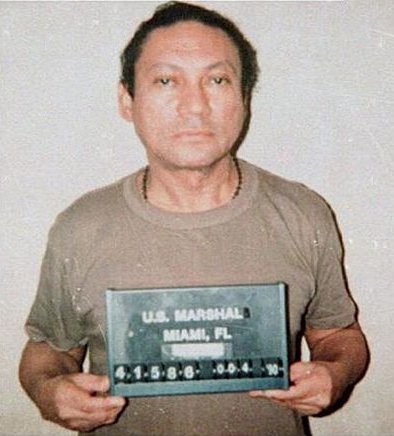|
Corruption
Corruption is a form of dishonesty or a criminal offense that is undertaken by a person or an organization that is entrusted in a position of authority to acquire illicit benefits or abuse power for one's gain. Corruption may involve activities like bribery, influence peddling, and embezzlement, as well as practices that are legal in many countries, such as lobbying. Political corruption occurs when an office-holder or other governmental employee acts in an official capacity for personal gain. Historically, "corruption" had a broader meaning concerned with an activity's impact on morals and societal well-being: for example, the ancient Greek philosopher Socrates was condemned to death in part for "corrupting the young". Contemporary corruption is perceived as most common in kleptocracies, oligarchies, narco-states, Authoritarianism, authoritarian states, and mafia states, however, more recent research and policy statements acknowledge that it also exists in wealthy capitalist e ... [...More Info...] [...Related Items...] OR: [Wikipedia] [Google] [Baidu] |
Political Corruption
Political corruption is the use of powers by government officials or their network contacts for illegitimate private gain. Forms of corruption vary but can include bribery, lobbying, extortion, cronyism, nepotism, parochialism, patronage, influence peddling, Graft (politics), graft, and embezzlement. Corruption may facilitate criminal enterprise, such as drug trafficking, money laundering, and human trafficking, although it is not restricted to these activities. Over time, corruption has been defined differently. For example, while performing work for a government or as a representative, it is unethical to accept a gift. Any free gift could be construed as a scheme to lure the recipient towards some biases. In most cases, the gift is seen as an intention to seek certain favors, such as work promotion, tipping in order to win a contract, job, or exemption from certain tasks in the case of junior worker handing in the gift to a senior employee who can be key in winning the favor. ... [...More Info...] [...Related Items...] OR: [Wikipedia] [Google] [Baidu] |
Anti-corruption
Anti-corruption (or anticorruption) comprises activities that oppose or inhibit corruption. Just as corruption takes many forms, anti-corruption efforts vary in scope and in strategy. A general distinction between preventive and reactive measures is sometimes drawn. In such framework, investigative authorities and their attempts to unveil corrupt practices would be considered reactive, while education on the negative impact of corruption, or firm-internal compliance programs are classified as the former. History Early history The code of Hammurabi (), the Edict of Horemheb (), and the Arthasastra (2nd century BC) are among the earliest written proofs of anti-corruption efforts. All of those early texts are condemning bribes in order to influence the decision by civil servants, especially in the judicial sector. During the time of the Roman Empire, corruption was also inhibited, such as by a decree issued by emperor Constantine I in 331. In ancient times, moral pr ... [...More Info...] [...Related Items...] OR: [Wikipedia] [Google] [Baidu] |
Bribery
Bribery is the corrupt solicitation, payment, or Offer and acceptance, acceptance of a private favor (a bribe) in exchange for official action. The purpose of a bribe is to influence the actions of the recipient, a person in charge of an official duty, to act contrary to their duty and the known rules of honesty and integrity. Gifts of money or other items of value that are otherwise available to everyone on an equivalent basis, and not for dishonest purposes, are not bribery. Offering a discount or a refund to all purchasers is a rebate (marketing), rebate and is not bribery. For example, it is legal for an employee of a Public Utilities Commission involved in electric rate regulation to accept a rebate on electric service that reduces their cost of electricity, when the rebate is available to other residential electric customers; however, giving a discount specifically to that employee to influence them to look favorably on the electric utility's rate increase applications would ... [...More Info...] [...Related Items...] OR: [Wikipedia] [Google] [Baidu] |
Daniel Kaufmann (economist)
Daniel Kaufmann is the president emeritus of the Natural Resource Governance Institute (NRGI), which resulted from the merger of the Revenue Watch Institute – Natural Resource Charter. He is also a nonresident senior fellow at the Brookings Institution, where he was previously a senior fellow, and until July 2019 served in the international board of the Extractive Industries Transparency Initiative and in a number of advisory boards on governance, anti-corruption and natural resources and has also been in high-level expert commissions such as at the Organisation for Economic Co-operation and Development, the Inter-American Development Bank and the Mo Ibrahim Foundation. Prior to that, he was a director at the World Bank Institute, leading work on governance and anti-corruption. He was also a senior manager and lead economist at the World Bank, writing and working on many countries around the world, and was a visiting scholar at Harvard University. He has also served in other board ... [...More Info...] [...Related Items...] OR: [Wikipedia] [Google] [Baidu] |
Lobbying
Lobbying is a form of advocacy, which lawfully attempts to directly influence legislators or government officials, such as regulatory agency, regulatory agencies or judiciary. Lobbying involves direct, face-to-face contact and is carried out by various entities, including individuals acting as Voting, voters, constituents, or private citizens, corporations pursuing their business interests, nonprofits and Non-governmental organization, NGOs through advocacy groups to achieve their missions, and legislators or government officials influencing each other in legislative affairs. Lobbying or certain practices that share commonalities with lobbying are sometimes referred to as government relations, or government affairs and sometimes legislative relations, or legislative affairs. It is also an Industry (economics), industry known by many of the aforementioned names, and has a near-complete overlap with the public affairs industry. Lobbyists may fall into different categories: amateur lo ... [...More Info...] [...Related Items...] OR: [Wikipedia] [Google] [Baidu] |
Kleptocracies
Kleptocracy (from Greek , "thief", or , "I steal", and from , "power, rule"), also referred to as thievocracy, is a government whose corrupt leaders (kleptocrats) use political power to expropriate the wealth of the people and land they govern, typically by embezzling or misappropriating government funds at the expense of the wider population."Kleptocracy". ''The Oxford English Dictionary''. Oxford University Press. 1st ed. 1909. One feature of political-based socioeconomic thievery is that there is often no public announcement explaining or apologizing for misappropriations, nor any legal charges or punishment levied against the offenders. Kleptocracy is different from plutocracy (rule by the richest) and oligarchy (rule by a small elite). In a kleptocracy, corrupt politicians enrich themselves secretly outside the rule of law, through kickbacks, bribes, and special favors from lobbyists and corporations, or they simply direct state funds to themselves and their asso ... [...More Info...] [...Related Items...] OR: [Wikipedia] [Google] [Baidu] |
Mafia State
In politics, a mafia state is a Sovereign state, state system where the government is tied with organized crime to the degree when government officials, the police, and/or military became a part of the criminal enterprise. According to US diplomats, the expression "mafia state" was coined by Alexander Litvinenko. Particular applications of the concept Mafia in Italy and Yakuza in Japan In a critical review of Moisés Naím's essay in ''Foreign Affairs (journal), Foreign Affairs'', Peter Andreas pointed to the long existence of Italian mafia and Japanese Yakuza, writing that there were close relationships between those illicit organisations and respective governments. According to Andreas, these examples speak against incidences of mafia states as a historically new threat. In Italy, three main mafia organisations originated in the 19th century: the Cosa Nostra originating from the region of Sicily, the Camorra originating from the region of Campania, and the 'Ndrangheta origin ... [...More Info...] [...Related Items...] OR: [Wikipedia] [Google] [Baidu] |
Influence Peddling
Influence peddling, also called traffic of influence or trading in influence, is the practice of using one's influence in government or connections with authorities to obtain favours or preferential treatment for another, usually in return for payment. Influence peddling ''per se'' is not necessarily illegal, as the Organisation for Economic Co-operation and Development (OECD) has often used the modified term "undue influence peddling" to refer to illegal acts of lobbying; however, influence peddling is typically associated with corruption and may therefore delegitimise democratic politics with the general public. It is punishable as a crime in Argentina, Belgium, Bulgaria, Brazil, France, Hungary, Italy, Lithuania, Mexico, Portugal, Romania, Spain, and the United Kingdom. Known cases In December 2008, Rod Blagojevich, the then Governor of Illinois, was accused of influence peddling in attempting to sell the U.S. Senate seat vacated by the then President-elect Barack Obama. ... [...More Info...] [...Related Items...] OR: [Wikipedia] [Google] [Baidu] |
Politics
Politics () is the set of activities that are associated with decision-making, making decisions in social group, groups, or other forms of power (social and political), power relations among individuals, such as the distribution of Social status, status or resources. The branch of social science that studies politics and government is referred to as political science. Politics may be used positively in the context of a "political solution" which is compromising and non-violent, or descriptively as "the art or science of government", but the word often also carries a negative connotation.. The concept has been defined in various ways, and different approaches have fundamentally differing views on whether it should be used extensively or in a limited way, empirically or normatively, and on whether conflict or co-operation is more essential to it. A variety of methods are deployed in politics, which include promoting one's own political views among people, negotiation with other ... [...More Info...] [...Related Items...] OR: [Wikipedia] [Google] [Baidu] |
Authoritarianism
Authoritarianism is a political system characterized by the rejection of political plurality, the use of strong central power to preserve the political ''status quo'', and reductions in democracy, separation of powers, civil liberties, and the rule of law. Authoritarian regimes may be either autocratic or oligarchic and may be based upon the rule of a party or the military. States that have a blurred boundary between democracy and authoritarianism have sometimes been characterized as "hybrid democracies", " hybrid regimes" or "competitive authoritarian" states. The political scientist Juan Linz, in an influential 1964 work, ''An Authoritarian Regime: Spain'', defined authoritarianism as possessing four qualities: # Limited political pluralism, which is achieved with constraints on the legislature, political parties and interest groups. # Political legitimacy based on appeals to emotion and identification of the regime as a necessary evil to combat "easily recognizabl ... [...More Info...] [...Related Items...] OR: [Wikipedia] [Google] [Baidu] |
Narco-state
Narco-state (also narco-capitalism or narco-economy) is a political and economic term applied to countries where all legitimate institutions become penetrated by the power and wealth of the illegal drug trade. The term was first used to describe Bolivia following the 1980 coup of Luis García Meza which was seen to be primarily financed with the help of narcotics traffickers. The term is often seen as ambiguous because of the differentiation between narco-states. The overall description would consist of illegal organisations that either produce, ship or sell drugs and hold a grip on the legitimate institutions through force, bribery or blackmail. This situation can arise in different forms. For instance, Colombia, where drug lord Pablo Escobar ran the Medellín Cartel (named after his birthplace) during most of the 1970s and 1980s, producing and trafficking cocaine to the United States of America. Escobar managed to take over control of most of the police forces in Medellín ... [...More Info...] [...Related Items...] OR: [Wikipedia] [Google] [Baidu] |








